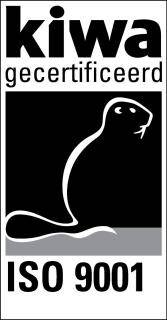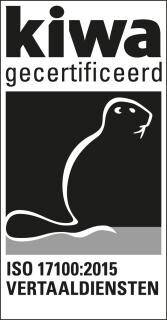
The art of translating scientific texts
Translating scientific articles isn’t an easy process. Scientific content includes medical texts such as product information leaflets, articles on nature and chemistry or various research reports. To ensure the best possible translation, scientific translators require specific skills.Scientific and medical texts often use specialist terminology to explain complicated concepts and ideas. Science contains a diversity of varied subject matter, meaning not every scientific translator is suited to the translation of a random scientific text. AgroLingua searches carefully for a suitable translator, focusing specifically on selection through previous experience and knowledge relating to the area of expertise.
In this blog we’ll explain:
- what typifies a good translation of a scientific text.
- why and how this differs to translating a social media message.
- which skills a scientific translator needs.
What typifies a good translation of a scientific text?
The translation of a scientific article demands extensive knowledge, extending much further than simply possessing a perfect grasp of the language. Scientific texts range widely from product information leaflets, case studies, diagnoses, documentation, clinical studies, research reports, medical papers for trade journals, study documents, technical and specialist literature to scientific articles in general. In most cases, these texts are published and made available to a large and often critical audience. This serves to illustrate both the importance of translation work within the sector, and which requirements are placed on the translation and the scientific translator.
Before starting the translation process, the team at AgroLingua examines the subject of the text to determine the terminology required for translation. This ensures the correct terminology is used to fit the context. When entering a partnership with a new client, we discuss the use of specialist terminology to ensure the correct use of information and guarantee that the content of the translation mirrors that of the original text. Within the area of scientific technology, specific products require the use of specialist terminology, and the client will also prefer the use of certain terms. A glossary is created and agreed upon with the client to ensure the correct application of specialist terminology. A dedicated contact person is assigned who is available for the entire duration of your project.
Scientific texts contain few stylistic devices and are notable for their use of technical language referring to specific subjects. For these projects, the translator focuses on the source language: the words within the context of the original document are transferred directly and the text is translated literally, with the exception of grammatical constructions found in the target language. It is important that the translation mirrors the accuracy and style of the original scientific article. Another method of translation, namely a free translation, isn’t an option when it comes to scientific assignments.
How is this different to translating a social media message?
Translating social media messages naturally requires the content of the target text to be the same as the source text. However, social networks implement different rules and restrictions on language use. The translator is often asked to work within certain constraints; for example, writing a tweet on Twitter is limited to 280 characters. Translating a scientific text is not constricted by a character limit.
Tone of voice on social media is very specific, and often unique to the social network. The target audience, organisation and sector are also very important factors. When translating specific scientific texts, the target audience is often already known. It is essential that the scientific translator is fully qualified in the subject area to ensure a high quality translation. Regular and dynamic developments make science a unique discipline. Terminology and subjects change and develop from one day to the next. A good technical translator must always take this into account.
What skills does a scientific translator need?
The translation of scientific texts requires not only comprehensive knowledge of the language, but also wider scientific knowledge. Scientific texts are often complicated to read and contain lots of technical terms, meaning it’s not always easy for an outsider to understand what is written.
WThat’s why at AgroLingua, we select our specialist translators with the utmost care. We only select translators with specialist experience and thorough knowledge and expertise of the subject terminology, and the ability to check the accuracy of the text. Familiarity with the linguistic standards of the specialist area is essential to ensuring a competent translation.
Discover the advantages of AgroLingua for yourself
Would you like more information about AgroLingua’s services? We’ll be happy to assist you. Please don’t hesitate to contact us! Not active in the agricultural sector, but still looking for a translation agency? At our sister company TempoVertaler we translate texts from all other sectors.
Back to blogs





